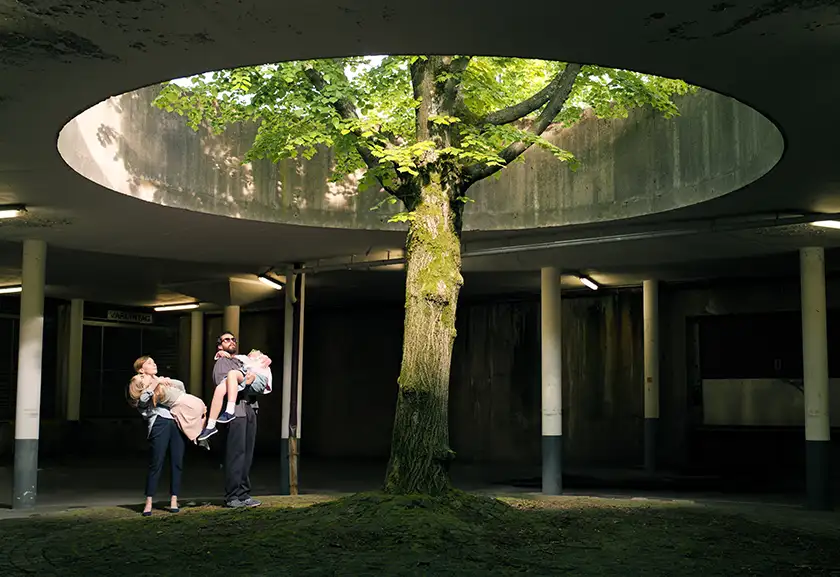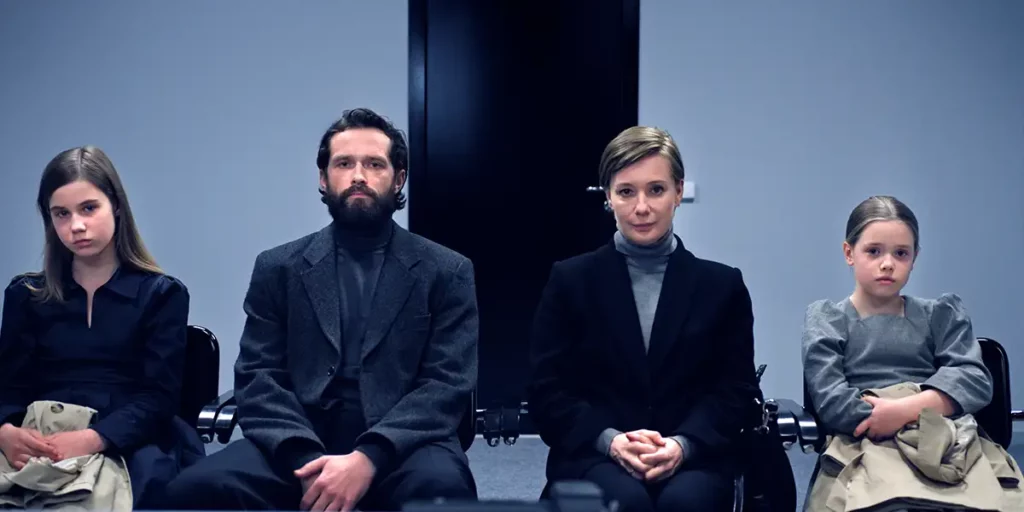Alexandros Avranas’ Quiet Life doesn’t quite know what to do with the fascinating, real-life phenomenon at its center, resulting in a mess of a movie with little to say.
Director: Alexandros Avranas
Genre: Drama
Run Time: 99′
Venice Premiere: August 29, 2024
Release Date: TBA
Watching Quiet Life, it’s hard to tell exactly what writer-director Alexandros Avranas (Miss Violence) and co-writer Stavros Pamballis were trying to say with their latest film. Is it that asylum seekers should be treated better? That refugee parents shouldn’t have children? That immigration should be abolished? That Sweden is evil?
Though the movie feels well-intentioned enough to make me lean toward the former, it’s also so tonally and narratively confused that viewers are bound to be asking the same questions when the credits roll.
Quiet Life attempts to raise awareness on a mystery illness called Child Resignation Syndrome, which, according to the film, seems to have been affecting, for over twenty years, a very specific target demographic: refugee children coming from former Soviet and Yugoslav countries and seeking asylum in Sweden. The symptoms? Suddenly falling into a coma despite being in perfect health. The reason? That’s up for debate.
The movie revolves around a family of Russian asylum seekers: Sergei (Grigoriy Dobrygin, of A Most Wanted Man), Natalia (Chulpan Khamatova, of Petrov’s Flu), and their two young girls, Alina (Naomi Lamp) and Katja (Miroslava Pashutina). Not long into the film, we learn that our four characters are waiting to find out if their request for permanent residency in the country as refugees has been approved. Soon, we follow them into a room, where we find out that they fled their own country because they were threatened and even attacked by members of the government, who were trying to intimidate Sergei – a school principal – and prevent him from promoting democracy in and outside the classroom.
Not long after that, Sergei and Natalia’s request is denied: to Swedish authorities, it seems so unlikely for the attack on their lives to have been carried out by the Russian State that they’d require proof to consider their application. Given the state of the world, that, in itself, would seem unlikely, but it’s only the beginning of a series of puzzling developments. The first one is the Sweden’s reaction to their daughter Katja falling into a coma right after the family gets the news. Right away, Katja is taken into the care of the authorities and placed into a sort of therapy that “involves the separation of the child from its family,” as they blame the latter’s anxiety for the former’s inability to feel safe, which they believe made her “disassociate herself from reality”.
But Sergei and Natalia’s troubles have only just begun, in a film that seems to spend most of its run time reveling in the pain it inflicts upon them, and blaming them for the situation in which they find themselves. As the movie goes on, its insistence of depriving them of everything gets so unlikely and theatrical that it all becomes ridiculous, and even laughable. The main issue, here, is that Quiet Life doesn’t know if it wants to be a serious investigation into an illness that not many people know about or a dark sci-fi thriller about heroes fighting evil. Since the antagonist is a country that’s very much real, and the Syndrome itself also exists in real life, it’s hard to take this movie simply as a work of fiction. Yet, on the other hand, it also cannot be taken seriously, when everything is exaggerated to the point of being farcical.

Another aspect to consider is the illness itself. Right before the end, writing appears on the screen explaining that Child Resignation Syndrome has been around since 1998, and that the condition was recognized by the Swedish National Board of Health and Welfare as “a novel diagnostic entity” in 2014. It goes on to say that the “vast majority” of cases involved “refugee children from former Soviet and Yugoslav countries,” and claims that “in the wake of recent conflicts, incidences of the syndrome are expected to increase exponentially.” Instead of taking the chance to provide actual data on the issues explored in the film, Quiet Life remains vague till the very end, with a message that blends facts – the phenomenon’s existence – with opinions whose sources aren’t even disclosed. Sadly, by the time the credits roll, you won’t have found out much about this mysterious illness.
From a quick google search, I learned that Resignation Syndrome is not currently recognized as a valid psychiatric condition by the World Health Organization, and that, though it does appear to be more prevalent in Sweden than anywhere else, not much is known about it yet. While I do think the film has a point in attributing its roots to trauma, it also seems to blame Sweden – or, at least, a fictionalized, antagonistic version of it, and its treatment of its central family is manipulative at best.
While the film is a work of fiction, the fact that it uses both a real-life premise and groups of people that actually exist – asylum seekers, and Swedish authorities – means it at least has the responsibility to tell us which parts of the story are true and which parts are fictional. Instead, it feels like what Avranas did, here, was simply taking a fascinating premise, forgetting about its real-life origins, and constructing a “good versus evil” science fiction tale around it. This makes for an awkward experience, not only for the little compassion shown toward its characters, but also because so little is known about this condition and the film could have really used its premise to actually say something meaningful about the topic.
In the press notes for the movie, Alexandros Avranas explains that he did extensive research on the “syndrome” and even spoke with the leading experts on the subject. It’s such a shame that he opted for a dystopian, theatrical atmosphere instead of really delving into these characters and the very real issue that plague them. Quiet Life is a well-intentioned film, but it’s sadly a mixed bag. Here’s hoping Avranas is able to replicate the winning formula of his Silver Lion-winning Miss Violence soon.
Quiet Life had its World Premiere at the Venice Film Festival on August 29, 2024.

